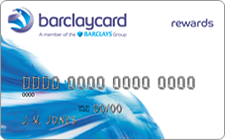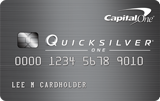- myFICO® Forums
- Bouncing Back from Credit Problems
- Rebuilding Your Credit
- Determining Date of Default?
- Subscribe to RSS Feed
- Mark Topic as New
- Mark Topic as Read
- Float this Topic for Current User
- Bookmark
- Subscribe
- Mute
- Printer Friendly Page
Determining Date of Default?
Is your credit card giving you the perks you want?
Browse credit cards from a variety of issuers to see if there's a better card for you.
- Mark as New
- Bookmark
- Subscribe
- Mute
- Subscribe to RSS Feed
- Permalink
- Report Inappropriate Content
Re: Determining Date of Default?
@driftless wrote:I tried a Direct Dispute before. I do not have the account number and the CA said that they did not have reply as a result.
Alright then you need to contact the OC and request a letter that indicates what the DoFD is. By law a CA has to report the DoFD to the CRA within 90 days of them receiving the collection.




- Mark as New
- Bookmark
- Subscribe
- Mute
- Subscribe to RSS Feed
- Permalink
- Report Inappropriate Content
Re: Determining Date of Default?
Thanks. Is there a form letter that I can use to contact the OC?
Amex Blue Business Plus
- Mark as New
- Bookmark
- Subscribe
- Mute
- Subscribe to RSS Feed
- Permalink
- Report Inappropriate Content
Re: Determining Date of Default?
@driftless wrote:Thanks. Is there a form letter that I can use to contact the OC?
No there isnt a form letter for this, its something that I would just request by phone, one other thing you dont want to go poking the bear if its still inside SOL there could be unintended consequences.




- Mark as New
- Bookmark
- Subscribe
- Mute
- Subscribe to RSS Feed
- Permalink
- Report Inappropriate Content
Re: Determining Date of Default?
No SOL issues, it is just a matter of when it drops off or can be coaxed to be dropped off. Thank you again.
Amex Blue Business Plus
- Mark as New
- Bookmark
- Subscribe
- Mute
- Subscribe to RSS Feed
- Permalink
- Report Inappropriate Content
Re: Determining Date of Default?
If you adequately identify the debt/their collection, then they must respond to a direct dispute.
If you provide sufficient info that permits them to identify the account, then you dont need their account number.
As for substance of any direct dispute, I see two problems. Without knowing what they reported, how can you dispute its accuracy?
If you do dispute its accuracy, do you have any documentation that shows what it should be?
A general dispute that does neither is not an adequate dispute.
Are you still concerned with satisfaction of the debt, or are you considering non-payment based simply on credit report exclusion of the collections?
The quickest path to credit report deletion would be to obtain agreement to a PFD offer to the current owner. DOFD then becomes a moot issue.
- Mark as New
- Bookmark
- Subscribe
- Mute
- Subscribe to RSS Feed
- Permalink
- Report Inappropriate Content
- Mark as New
- Bookmark
- Subscribe
- Mute
- Subscribe to RSS Feed
- Permalink
- Report Inappropriate Content
Re: Determining Date of Default?
Thanks. I am not interested in a PFD as it should drop off soon. My credit scores are now above 700 despite this blemish.
Amex Blue Business Plus
- Mark as New
- Bookmark
- Subscribe
- Mute
- Subscribe to RSS Feed
- Permalink
- Report Inappropriate Content
Re: Determining Date of Default?
A PFD also results in deletion of the collection from your credit file and satisfaction of the debt.
Credit report exclusion does not.
- Mark as New
- Bookmark
- Subscribe
- Mute
- Subscribe to RSS Feed
- Permalink
- Report Inappropriate Content
Re: Determining Date of Default?
Thanks, but I am not interested in a PFD.
Amex Blue Business Plus
- Mark as New
- Bookmark
- Subscribe
- Mute
- Subscribe to RSS Feed
- Permalink
- Report Inappropriate Content
Re: Determining Date of Default?
Another way is to simply look at the past payment history reported. Look for the first 30 days late leading to further lates and charge-off. That's going to be approx the DOFD. Alternatively, look for the date of last payment made on the account / check your old cc statements, and add two months to that for a conservative estimate of the DOFD.
Note the DOFD used for credit reporting purposes, while often pretty close, may not be exactly the DOFD used for determining start of statue of limitations (SOL). Many creditors will just go by whatever DOFD CRAs have on file, but sometimes a creditor will use the CO date or some other date after DOFD. Then there are zombie debt collectors who play by their own rules, but most don't bother suing, since that costs too much for what they paid for the debt, which is often pennies or even less down to zero, but I digress.



